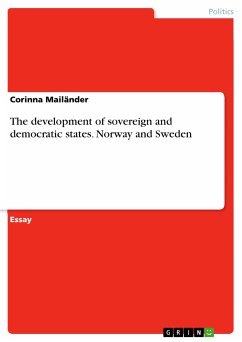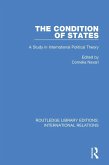After nearly six centuries of emergence and world dominance, the sovereign state now has a globally widespread competitor that frequently manages to surpass its capabilities in the areas of wealth, security, and self-determination. This book will show that in region after region throughout the world partially independent territories (including Hong Kong, Cayman Islands, Kurdistan, New Caledonia, and others) tend to be wealthier and more secure than their sovereign state counterparts. Often ignored because of their small size, lack of militaries, and divided powers, the partially independent territories that produce these advantages are responsible for nearly one-fifth of global capital flows, serve as solutions for some of the world's most intractable nationalistic disputes, and furnish important capabilities for sovereign states. The existence and capabilities of these polities contradict widely held assumptions of sovereign state pre-eminence and give rise to a range of puzzling issues that will be addressed by this book. Why do local nationalistically distinct populations accept partially independent unions? What guarantees do these polities have that their powers will not be usurped by internal and external adversaries? What makes core states (which divide and share powers with partially independent territories) willing to part with some of their sovereignty amidst fears that their countries will fully fragment? What are the prospects for the independence of Scotland, Catalonia, Puerto Rico, and the nearly 50 partially independent territories around the globe? This book explains how these polities emerge, maintain themselves, and sometimes come to an end.
Dieser Download kann aus rechtlichen Gründen nur mit Rechnungsadresse in A, B, BG, CY, CZ, D, DK, EW, E, FIN, F, GR, HR, H, IRL, I, LT, L, LR, M, NL, PL, P, R, S, SLO, SK ausgeliefert werden.









